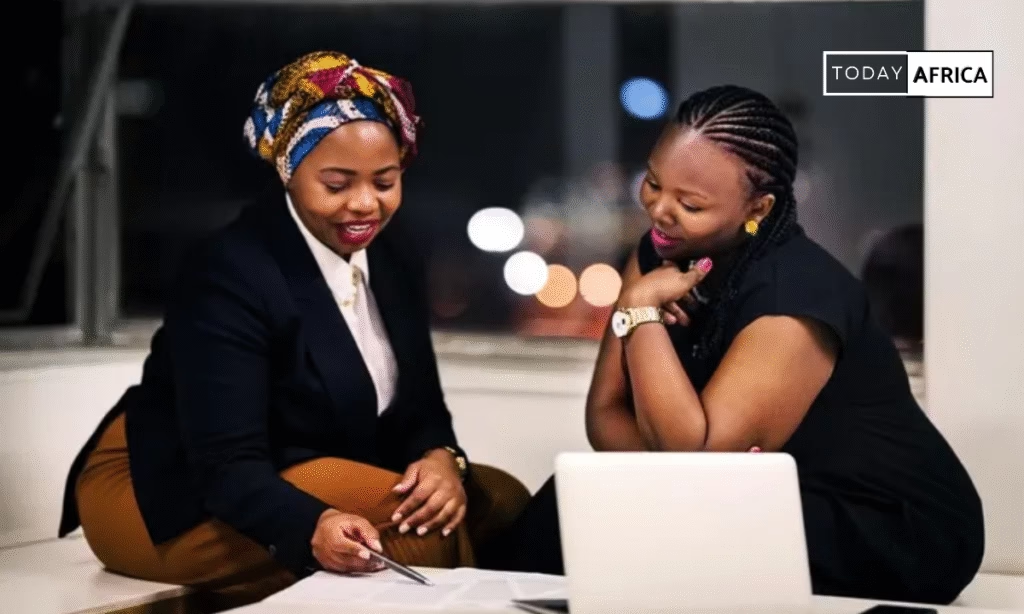There’s a point in every founder’s journey when the work starts to stretch beyond what one person can do. You’re juggling product decisions, customer conversations, finances, strategy, and maybe even code.
And at some point, something starts to slip. Or maybe you just feel the weight of carrying every part of the idea alone.
That’s usually when the thought shows up… maybe it’s time to find a co-founder.
But not just anyone. You want someone who lifts the parts you can’t lift. Someone who balances your instincts. Someone who pushes you, steadies you, and maybe even disagrees with you in ways that make the company stronger.
This article breaks down how to find a co-founder who complements your strengths in a practical, honest, and well-researched way.
Understand your strengths before you search
The irony is that finding the right co-founder starts with understanding yourself. If you don’t know what you bring, you’ll struggle to identify who belongs beside you.
Take an honest inventory of what you’re good at
Most founders underestimate their own strengths because those strengths feel obvious. But that’s exactly the point. If something feels easy to you, it’s probably something others struggle with.
Think about the roles you naturally take on:
- Strategist who connects the dots
- Builder who loves making things work
- Storyteller who rallies people around an idea
- Operator who finds comfort in structure
These aren’t random traits. They form your founder identity, and that identity determines what kind of partner will complement you.
Define the gaps you need to fill
Strong teams aren’t built by doubling down on the same strengths. They’re built by pairing strengths with counterweights.
Ask yourself:
- Which tasks drain me
- Which areas do I dislike or procrastinate
- And which skill sets would accelerate the company if someone else owned them
Being honest about your gaps makes the search sharper. Instead of “I need a co-founder,” you start thinking “I need someone who can handle operations” or “I need someone who feels at home in sales and partnerships.”
Read Also: How to Build a Brand Story from Day One
Know the qualities that actually matter
Skills get people’s attention. But the things that make a co-founder relationship work long-term usually aren’t skill-based.
Shared values are the real glue
You don’t need the same personality. You don’t even need the same working style. But you do need to share the same values.
This includes:
- How you treat people
- How you think about customers
- And how you handle pressure
- What integrity means to you
- Where you draw the line in business
If your values diverge, conflict becomes inevitable, even if the product succeeds.
Align on vision and ambition
One founder dreaming of global scale and another dreaming of a comfortable small business is a mismatch waiting to happen. Vision alignment isn’t about having identical dreams.
It’s about understanding each other’s ambitions and agreeing on the direction.
Talk early about:
- How big you want the company to become
- How long you’re willing to grind
- What kind of impact you want the business to have
- What “success” means for each of you
You’ll avoid a lot of unnecessary frustration.
Read Also: Creative Economy: Africa’s Global Soft Power
Know where to look for a co-founder who complements you
Some founders meet their partners by accident. Most don’t. You can be intentional about this.

Start with your existing network
People underestimate how rich their networks already are. Former coworkers, classmates, professional groups, old teammates… these are people who already have context for who you are.
Warm networks tend to work better because:
- Trust is easier
- Work habits are clearer
- Expectations are more realistic
- Collaboration starts faster
Sometimes your ideal co-founder is already one introduction away.
Tap into founder and industry communities
If your network doesn’t have the right mix of experience and personality, widen the circle. There are communities built specifically to help founders meet partners.
You might find good fits in places like:
- Startup accelerators
- Co-founder matching platforms
- Online founder communities
- Hackathons
- Industry meetups
- Tech conferences
- LinkedIn or Twitter groups
These spaces are filled with people actively looking to build, experiment, and collaborate. The conversations happen faster. The energy is different.
Read Also: AfCFTA’s Hidden Opportunities for African Startups
Evaluate candidates like you’re making a long-term bet
This isn’t just a hire. It’s someone who will influence the product, culture, team, future investors, and thousands of decisions you haven’t even thought about yet. You need a process.
Ask questions that reveal how they think
Surface-level enthusiasm doesn’t say much. Go deeper.
Try questions like:
- Tell me about a problem you solved that scared you at first.
- How do you respond to conflict
- What’s the hardest thing you’ve built
- What motivates you when you’re not in the mood
- And what do you do when you disagree with someone you respect
Pay attention to the stories they choose. And the parts they don’t mention.
Prioritize evidence over personality
A lot of founders look impressive in conversation. But you’re not building a podcast together. You’re building a company.
- Look for people who have:
- Completed hard projects
- Shown resilience
- Learned skills independently
- Worked on things without external pressure
- Owned their mistakes
Consistency beats charisma every time.
Test the partnership before making it official
Great co-founder relationships don’t come from theory. They come from working together in real conditions.
Work on a small, realistic project together
Pick something that requires actual collaboration. Something with deliverables, timelines, and responsibilities.
Maybe it’s:
- A mini-prototype
- A customer discovery sprint
- Landing page + marketing experiment
- Market research
- A pitch for early supporters
You’re not testing skill alone. You’re testing communication, expectations, pace, and alignment.
Pay attention to how you handle stress together
Stress doesn’t create problems. It reveals them. Once something unexpected happens, and you can intentionally create a small scenario if needed, you’ll start to see:
- Who takes initiative
- Who gets overwhelmed
- And who makes decisions thoughtfully
- Who jumps to blame
- Who remains calm
This is the version of each other you’ll meet most often while building a startup.
Read Also: The Gig Economy in Africa: Opportunity or Exploitation?
Set clear expectations and equity agreements
It’s tempting to skip the “business” part of the relationship in the early days. But clarity now prevents conflict later.
Define roles before defining titles
Titles can come later. What matters are the responsibilities. Who leads product decisions? Who handles hiring? And who drives operations? Clarity reduces overlap. Overlap reduces conflict.

Create a simple founders agreement
It doesn’t need to be complicated, but it should cover:
- Equity distribution
- Vesting schedules
- Decision-making rules
- Conflict resolution
- Exit scenarios
- Responsibilities
Think of it as a mutual blueprint for the journey ahead.
Read Also: Exit Strategies for African Startups (What Investors Should Know)
Know the red flags early
Some traits look harmless at first but become major problems in real startup conditions.
Overconfidence without depth
If someone talks like a world-class expert but provides no proof, no examples, and no curiosity… that’s a flag. Strong founders tend to be self-aware, not self-inflated.
Poor communication
- Long gaps with no updates
- Avoiding hard topics
- Inconsistent follow-through
- Defensiveness
If communication feels heavy in the beginning, it’ll feel heavier six months in.
Conclusion
If you’ve stayed with this till now, you’re probably serious about finding someone who fits, not just someone who’s available. And honestly, that’s the right mindset.
A co-founder shapes your company’s culture, growth, resilience, and even your emotional stability as a builder.
The right person complements your strengths in a way that feels natural. They fill your blind spots and challenge your assumptions. They expand your capacity instead of draining it.
Take your time. Have the honest conversations. Test the partnership in real conditions. And trust your instincts when something feels off or when something feels right in a way you can’t fully explain.
Leave a comment and follow us on social media for more tips:
- Facebook: Today Africa
- Instagram: Today Africa
- Twitter: Today Africa
- LinkedIn: Today Africa
- YouTube: Today Africa Studio
















